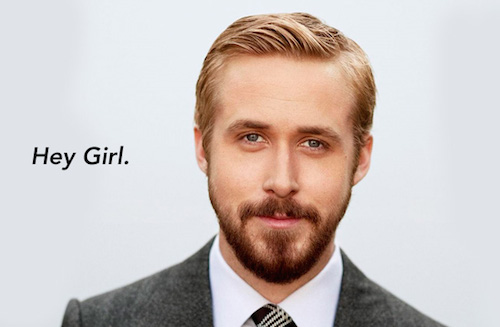
This week I taught love poems to my class of undergraduates at Columbia University. Let me rephrase that: this week I confessed to my students that I don't know anything about love. Before we look at the texts, I opened the class, I want to talk about love poetry as a genre. Historically, culturally, and commercially, poetry is always immediately associated with love poetry. Upon learning that one is a poet, one's friends, family and acquaintances will forever ask for poems to read at a wedding. The genre is oppressive.
What, I asked my students, apprentices to contemporary verse, is a love poem in 2015? Maybe it’s about hooking up, or Ryan Gosling, or Xanax, or Tinder, or text message bubbles, or Victoria’s Secret, or Country Western line dances, or a simpler time, or black boys, or black boys, or America, or democracy, or failed marriages, or sex, or sex, or a summer’s day.
There are a lot of reasons I have felt excluded from Capital-P Poetry in my life, and its seeming attachment to a particular brand of flowery, milk-skin, gushing love is one of them. As a teen I was known to my friends for my repulsion to all things mushy, for boycotting rom-coms, rolling my eyes at Kate Hudson, and— literally— falling ill every Valentine's Day. Though it was chalked up to my punk rock phase, I knew there was something else barring me access from anything resembling bliss. Maybe this love, this Shakespearean, Kate Hudson love, was not for me. Was not for black girls. Maybe love was another Nancy Meyers ideal, another privilege. Something for people who didn’t have other things to worry about. Bigger things like: why, daily, someone walks right into me on the street. Why my right to be beautiful is publicly debated, questioned, scandalized. Why the hot water’s off. Why even lovers are afraid of me, or even worse, trying to get revenge on their white mothers— even the bed is politics, is battle and conquest. Maybe you have to feel safe to fall in love. Maybe you have to be able to have the privilege to ignore everything else.
You had me at indictment. You had me at abolition. You had me at forgiveness. You had me at amendment to an amendment. You had me at teach-in. You had me at intersectional. You had me at overthrow. You had me at boycott.
I return again to Baraka's “Black Art,” choosing not to let the hateful, angry language that precedes it cancel out this, the poem’s most beautiful and quiet moment, the poem’s truest and most painful moment: “Let there be no love poems written/ until love can exist freely and/ cleanly.” This is not, dear world, where we are. No one knows what love is anymore. Not America. Not me, my students. It looks too much like loyalty, like obsession, like pain. It looks too much like hate.
My students think that poets are more sensitive to the human condition than other people. I love my parents, my poodle, my brother, I love words, I love jazz, I love red wine. But who cares? If I was born with this little ration of love, every day more of it leaks out of me. But the Capital L Love, the stuff of poetry, floating ethereal and plenty and free for anyone with a cup, is there any left? I am not so certain it isn’t totally obscured, fire-hosed, price-tagged. We don’t love the earth we walk on. We hate strangers so much we shoot them. We don’t love ourselves enough to ask questions, or change. I am most sensitive to the human condition to destroy.
This is not a world for love poems. I wish it were. I wish my heart could feed a love poem, but this heart needs convincing to walk outside. I’d like to write a love poem some day, but I need to be taught how. I need to know I’m allowed, and I deserve it.
Morgan Parker is the author of the poetry collections Other People’s Comfort Keeps Me Up At Night (2015...
Read Full Biography

